Technology has revolutionised the retail industry with shopping apps paving the way for retailers to interact with consumers in a more personal and targeted way. Reaching consumers with discounts and special offers is more effective through an app that people have signed up to than printed material or billboards. Through a compelling user experience, users are more inclined to sign up to loyalty programs and be open to receive push notifications.
A survey from Visual Objects found the reason for the success of larger-scale shopping apps was a streamlined user experience and brand recognition, inferring that smaller brands could garner similar success through building trust while also delivering an exceptional user experience.
While driving discounts and lower prices is an important marketing strategy for many retailers, it’s not the only reason why millennials downloads apps. 54% download retail apps because it is often easier to download and use the app than it is to use the mobile site.
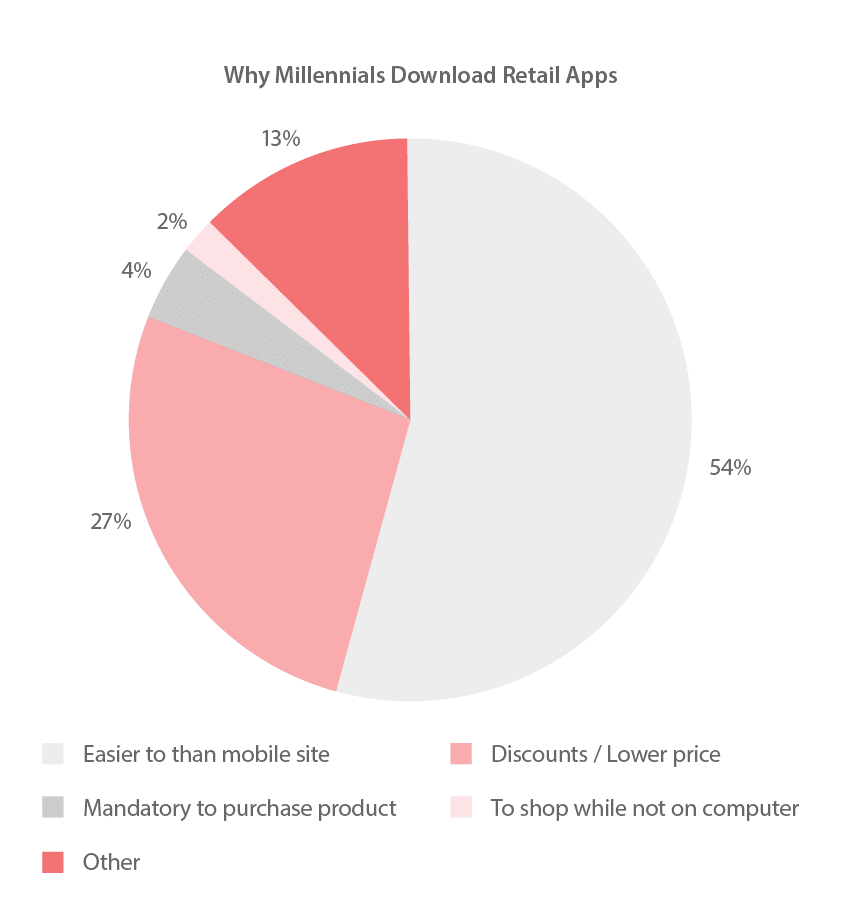
Moble commerce is the next generation of e-commerce. In 2021, 72.9% of all retail e-commerce is expected to be generated via mobile commerce, up from 58.9% in 2017.
App Annie’s latest State of Mobile 2020 report shows the effect of mobile apps on the retail industry now and into the future.
The image below from App Annie’s report shows how the worlds largest shopping festival 11:11 created by Alibaba generated $38.4 billion in sales in 24 hours with the lions share of these sales driven by mobile. Android users globally spent 2.5 billion hours on their mobiles in the weeks of Black Friday, Cyber Monday and the two weeks after, which is an increase of 40% year on year. In the US between November 1st and December 2nd, there was $33.1 billion spent on mobile, which accounted for 40% of all online sales.

Businesses are paying attention as more and more shoppers turn to mobile for their shopping experience. They are making the usability of their apps more personalised which is helping to drive engagement and downloads. Shopping app downloads grew by 20% from 2018 to 2019 to a staggering 5.4 billion downloads. The graph below shows the growth in time spent on shopping apps from 2018 to 2019 on Android phones globally. Indonesia saw the highest grown at 70% followed by India at 50%.
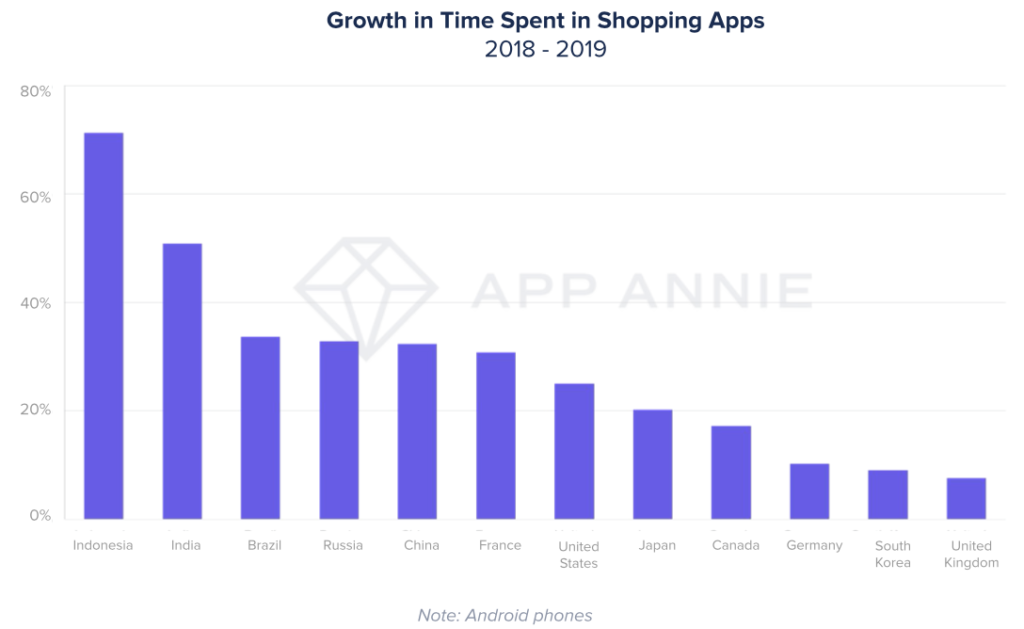
There’s a correlation between time spent on shopping apps and in-store conversions. The graph below shows this correlation for quarterly retail trade sales and time spent on retail apps on Android phones in the US between Q1 2017 to Q3 2019. Mobile is not just facilitating conversions through the shopping app, it’s driving a multichannel approach. Users are using the shopping apps for research and consideration, in-store purchasing and pick-up and tracking of packages.
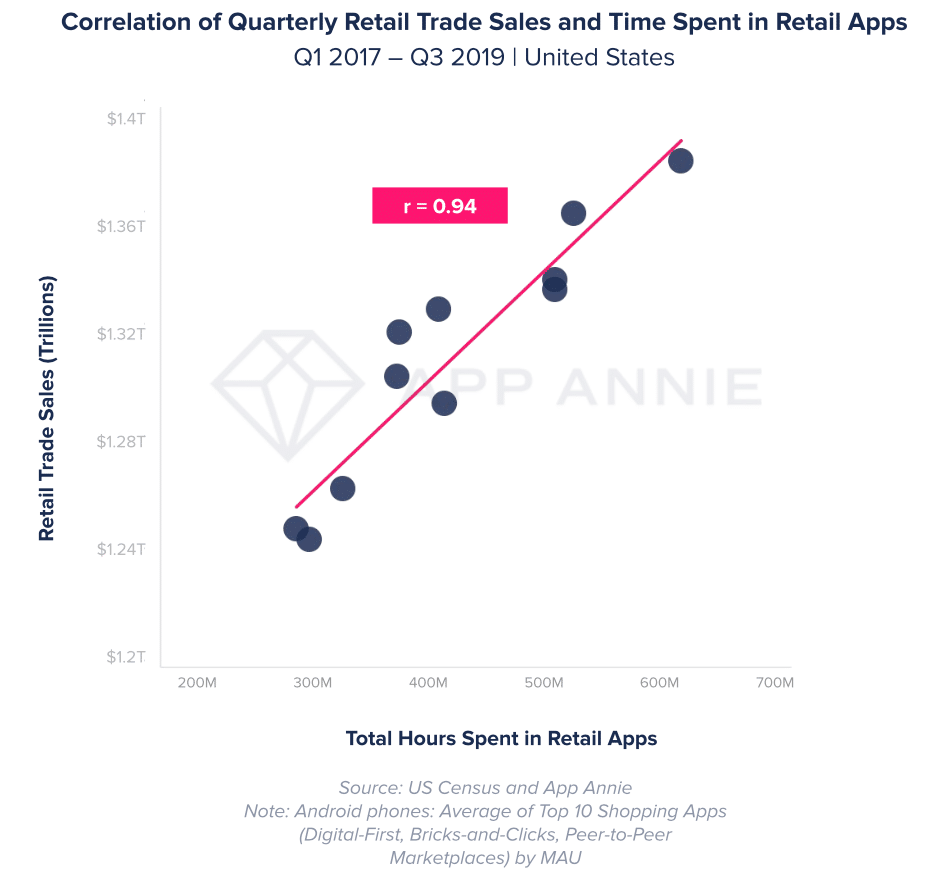
Mobile is key to growing retail businesses in 2020. The industry saw strong gains in 2019 for both digital-first and bricks and clicks apps with Nike’s digital business growing by 42% in Q3 2019. While digital-first apps have more average monthly sessions per user, bricks and clicks apps saw strong gains in total sessions year over year. Despite these strong gains digital first apps had 3.2x more average monthly sessions per user than bricks and clicks apps in 2019. The graph below shows growth in engagement of shopping apps from 2018 to 2019 on Android apps.
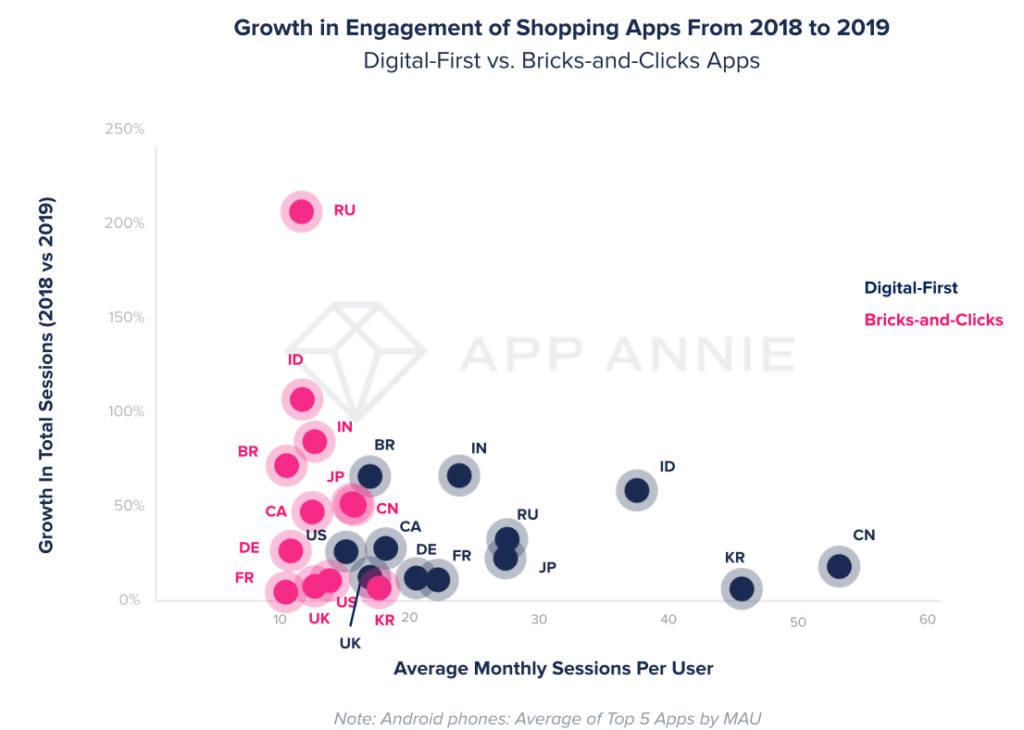
Heres’s a table of the breakout retails apps for 2019. There are no surprises that Amazon is topping the table in five out of the 12 countries listed.
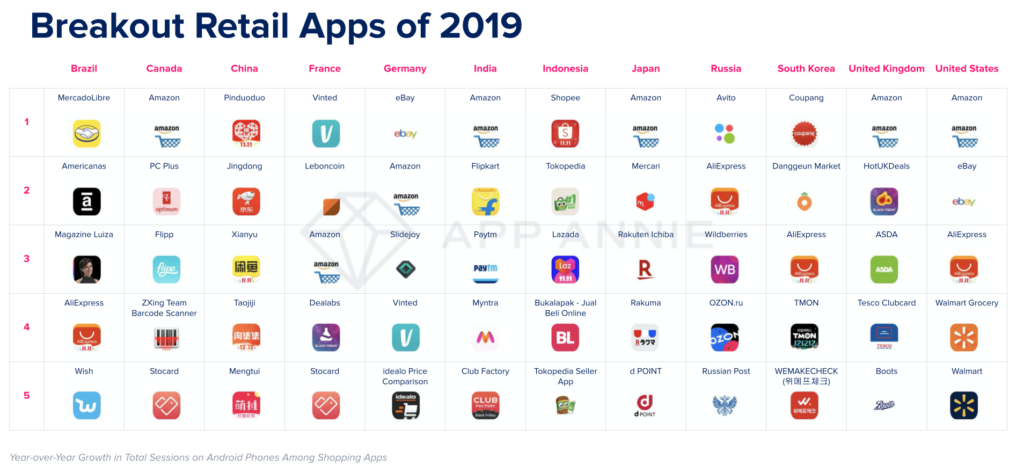
There are many ways to engage a multichannel approach with a shopping app. Bricks and mortar retailers can make use of the latest technologies such as geolocation and beacon technologies to drive customers into their stores. Shopping apps allow for easier implementation of loyalty programs and push notifications. They are a great way to engage users, but if they have an ineffective user experience there’s a chance that 40% of users will turn to a retailers competitor because of this bad mobile experience.
If considering a shopping app for your retail business it’s important to invest in the user experience as 61% of consumers have a better opinion of brands that offer a compelling mobile experience than brands that do not.
Maria Colgan
Digital Marketing Manager
Thanks for reading the Tapadoo blog. We've been building iOS and Android Apps since 2009. If your business needs an App, or you want advice on anything mobile, please get in touch
